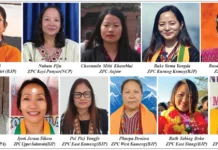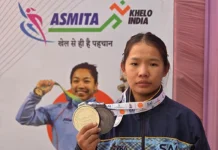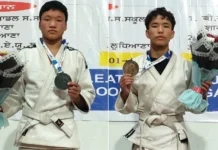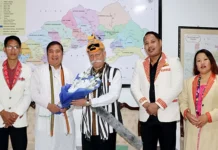ITANAGAR, 21 Nov: The 7th Arunachal Literature Festival (ALF) wrapped up its second day, advancing its core mission of ‘Building bridges through literature’ by emphasising on indigenous heritage, critical literary discourse, and international exchange.
The day’s events created a rich intellectual environment for cultural celebration and intergenerational dialogue.
The ‘meet the author’ sessions provided powerful insights into cultural preservation and environmental consciousness.
Celebrated Naga author Easterine Kire delivered a thought-provoking address in the Namdapha Hall, stressing the importance of an ecocentric worldview and offering sharp critiques of modern development’s exploitative practices. Her appeal centred on the necessity of living in harmony with nature.
Fellow author Abhay K focused on the urgency of cultural memory, highlighting the tragedy of “the forgetting of Nalanda.”
A cornerstone session, ‘In search of Abotani’,deepened the festival’s commitment to indigenous mythologies, exploring the diverse creation beliefs of the Adi, Nyishi and various other tribes. The session illustrated the rich yet distinct spiritual landscape of Arunachal Pradesh.
The day’s poetry readings were kick-started by Chief Secretary Manish Kumar Gupta with a humour-filled poem sharing his dynamics with his wife, setting an engaging tone.
The Pakke Hall hosted critical debates essential to the literary community.
A robust discussion on the ‘Role of literature festivals’ concluded with encouragement to young attendees to judge a book “by its author, rather than the cover,” urging a deeper, contextual reading.
The session on ‘Literary translation’ was framed as a vital act of cultural mediation, showcasing its power to transcend linguistic barriers.
Narrative diversity was celebrated in the prose readings, notably featuring international author Mami Yamada, who shared passages from her book Wheels of Destiny, focusing on strengthening Indo-Japanese cultural bonds and her pursuit of making it stronger through her work.
A panel discussion on ‘Life writings: Politics of remembering’ explored how personal narratives shape collective memory and questioned whose stories history chooses to remember. (DIPR)




